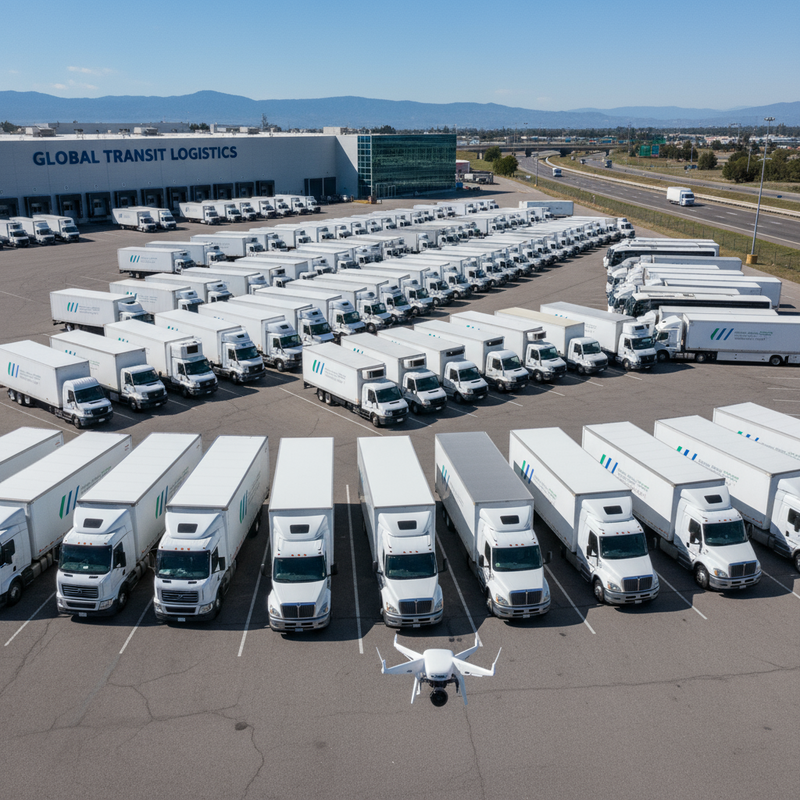Leveraging IoT Solutions for Smart Fleet Management in 2025 https://marios-organization-13.gitbook. … solutions/
The intersection of Internet of Things (IoT) technology and fleet management is reshaping transportation and logistics industries in 2025. IoT solutions enable unprecedented connectivity among vehicles, assets, and management platforms, creating intelligent networks that enhance visibility, operational control, safety, and sustainability. This article details the transformative impact of IoT solutions in fleet management, highlighting key components, benefits, real-world applications, and emerging innovations.
What Are IoT Solutions in Fleet Management?
IoT fleet management solutions are systems integrating smart sensors, telematics devices, communication networks, and cloud analytics to collect and analyze vehicle and driver data in real time. Unlike traditional GPS tracking, IoT solutions encompass multiple telemetry streams—such as engine diagnostics, tire pressure, cargo conditions, driver biometrics, and environmental factors—to provide deeper operational insights.
Key Components of IoT Fleet Management Ecosystem
Sensors and Devices: Embedded in vehicles and cargo, sensors capture location, speed, engine performance, fuel levels, temperature, humidity, and driver activities.
Connectivity Networks: Data transmission relies on cellular (4G, 5G), satellite, LPWAN (Low Power Wide Area Networks), and Wi-Fi for constant, reliable data flow.
Data Platforms and Analytics: Cloud-based platforms aggregate, preprocess, and analyze telemetry using AI and machine learning to identify anomalies, predict maintenance needs, and optimize routes.
User Interfaces: Accessible via mobile and web apps, these interfaces deliver actionable dashboards, alerts, compliance reports, and detailed operational views.
Benefits of IoT Solutions in Fleet Management
Enhanced Operational Efficiency: Real-time tracking and predictive analytics enable dynamic route adjustments, preventing delays and maximizing asset utilization.
Decrease in Maintenance Costs: Early detection of mechanical issues via sensor data reduces unexpected defaults and repair expenses.
Improved Safety: Monitoring driver behavior and vehicle status reduces accident rates and supports safety training initiatives.
Fuel and Emissions Optimization: Detailed consumption data and eco-driving analytics help minimize waste and meet environmental targets.
Regulatory Compliance Automation: Automated logging and reporting ease adherence to regulatory mandates.
Asset Security: Continuous surveillance and geofencing protect cargo and vehicles from theft or unauthorized use.
Real-World Use Cases
IoT fleet management has pronounced impacts in sectors like cold chain logistics, where temperature sensors assure product quality, and construction, where real-time monitoring of heavy machinery mitigates equipment downtime. Delivery services benefit from live traffic updates and optimized scheduling, while public transit authorities enhance rider safety through comprehensive vehicle diagnostics.
Future Trends in IoT Fleet Management
Edge Computing: Processing data near the sensor supports faster decision-making, critical for safety and autonomous vehicle operations.
AI and Machine Learning: Advanced models refine predictive maintenance, anomaly detection, and driver coaching.
Blockchain Integration: Enhances data security and transparency across the supply chain.
5G and Satellite Connectivity: Ensures uninterrupted data transmission for remote or dense urban environments.
IoT solutions
Страница: 1
Сообщений 1 страница 1 из 1
Поделиться101.10.2025 21:47:53
Страница: 1




